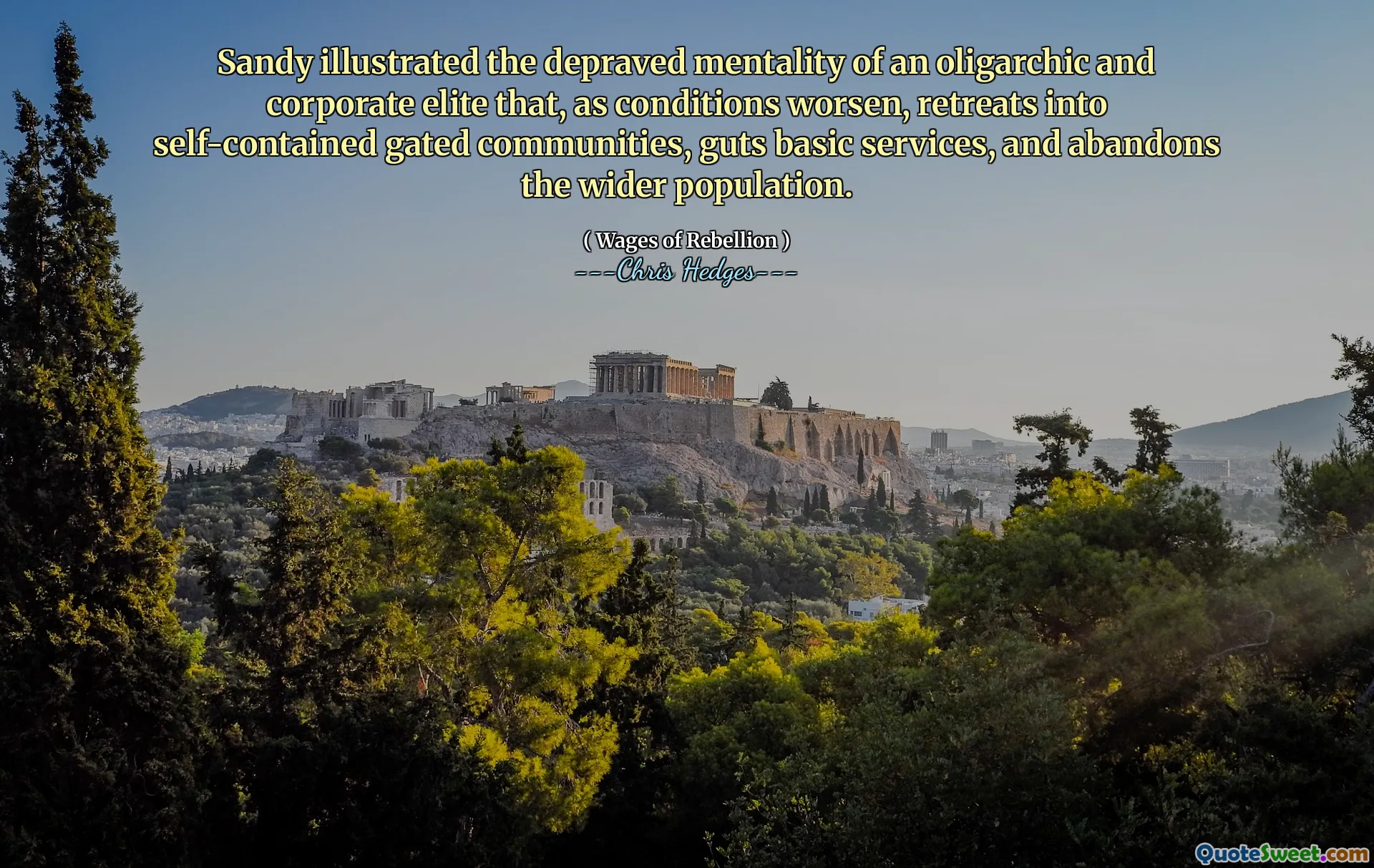
Sandy illustrated the depraved mentality of an oligarchic and corporate elite that, as conditions worsen, retreats into self-contained gated communities, guts basic services, and abandons the wider population.
📖 Chris Hedges
This quote vividly captures the troubling disposition of an elite class that prioritizes its self-preservation over societal well-being. At its core, it highlights a stark disconnect between the privileged few and the broader community that relies on collective infrastructure and social services. As crises—be they economic, environmental, or social—intensify, some powerful entities tend to isolate themselves behind fortified walls, effectively shutting out the hardships faced by the less fortunate. Such actions not only deepen social stratification but also erode trust and social cohesion. When the wealthy in gated communities gut public services and withhold resources from the wider population, it exacerbates disparities and fosters resentment. This behavior reflects a depraved mentality — one that neglects a fundamental sense of shared humanity and responsibility. Historically, periods of social upheaval reveal that neglecting the needs of the many in favor of the interests of the few ultimately jeopardize the stability of societies. Policies and attitudes that foster inclusivity and equitable resource distribution act as safeguards against such decay. Recognizing this behavior as symptomatic of a deeper moral and political crisis challenges us to reimagine governance that values collective well-being over oligarchic interests, and to demand accountability from those who hold power. The quote reminds us that complacency in the face of inequality fuels systemic collapse, and the establishment of a more equitable social fabric is essential for long-term resilience.







